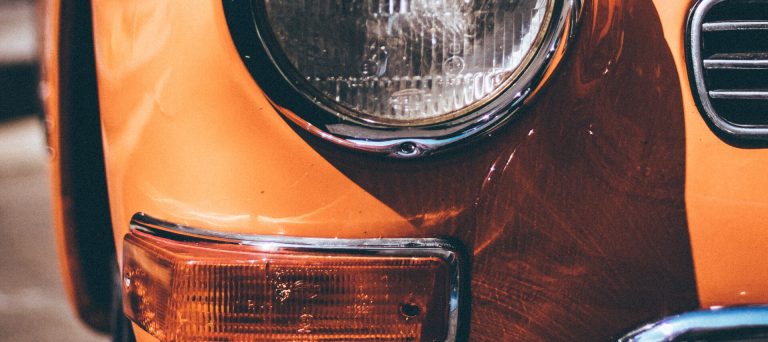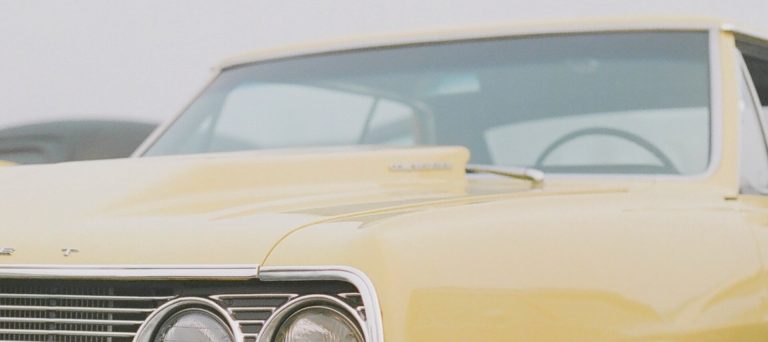Hi Barasa,
I have owned a Toyota Mark X, 2005 model for six months. Last week, it started showing the check engine light. A diagnostic revealed one of its oxygen sensors had stopped functioning. Is it ok to still drive it?
A lot of Mark X have these problems. Also, when I press on the brakes, it makes a ticking noise. I have put genuine brake pads but the problem persists. A mechanic told me it is the front shocks that have leaked and are causing the noise. Please advise,
Mark X owner
It is not okay to keep driving when one or more of the oxygen sensors is malfunctioning. There is the real and present danger of the catalytic convertor getting damaged or clogged in the process.
When you finally have to replace one of these, you will wish that you had taken care of the oxygen sensors.
With a failed sensor, the engine control unit (ECU) can’t tell whether or not the car is effectively burning its fuel and cannot thus adjust the timing accordingly.
What happens is that a good amount of unburnt hydrocarbons make their way to the cat and from there… clogging. Premature replacement or unclogging, can cost a pretty figure.
Just get a new sensor. Maintenance, replacements and repairs are part of motor vehicle ownership, much in the same way that when one has a child, school fees and medical bills are part of the deal.
The ticking noise under braking could be anything. A more definitive description would make it easier to narrow down on probable causes.
**********
Hi Baraza,
My car has been consuming vast amounts of coolant lately. I thought it was normal until one evening when the fan belt refused to stop. My mechanic advised me to disconnect the battery terminal.
The next day as I was driving to the mechanic at CMC, I noticed cloudy substance spewing out. I stopped and checked. The coolant container was empty, with the lid thrown out.
Surprisingly, the temperature gauge on the dashboard was reading normal. I let it cool, poured lots of water and drove to the mechanic, who on inspection said the coolant was leaking from the thermostat and some other pipes. I am about to replace the thermostat, but I wish to know the following:
1. How could this leakage have started?
2. What would have been the likely outcome if I never discovered the leakage early enough?
3. What are the possible remedies to prevent future leaks?
4. Water, red or green coolant; which one is preferred?
5. Could the tempereture gauge on the dashboard have been faulty and the reason it didn’t show that the engine was heating up?
Ben
Let me guess, the vehicle in question is a MK 1 Freelander, right? The very early pre-facelift examples, right? They were not a manifestation of Land Rover’s finest moment, having come into production when the Rover Group was facing imminent death (and was subsequently rescued by BMW). Anyway:
1. This is a CSI-type question because the exact source of the problem cannot be determined without dismantling the cooling system. However, the Freelander MK 1 was engineered in a hurry and on a shoestring budget, so build quality was not one of its strong points. Nor was reliability.
The research that went into material science is sketchy at best, and attention to detail must have been placed under a management team full of ADHD sufferers.
About 136 different faults were discernible on any car that left the factory, ranging from searing drive-shafts that rendered the car FWD only, to seizing power-steering pumps and upholstery that somebody forgot to drill HVAC holes into.
UK dealers were secretly asked to take a knife and cut holes into the fabric/leather dashboard and panel linings for the front and rear windscreens. Otherwise, the demisters would not work. If such an obvious thing as an outlet for the heater/AC was forgotten or shoddily executed, what then would you expect to happen when the engineering team started handling complex systems like the cooling and transmission?
The cause could be a blockage, a poorly strapped cooling pipe, a circlip that was left unfastened, a bolt omitted, a hole somewhere… or they simply did not take time to find out how long the cooling system would last before the fan got a mind of its own and blew the coolant cap off its moorings. It is really is hard to tell.
2. Overheating is what would have occurred, and from there it is a probability tree of various disasters depending on your luck. Your menu would have had options like blown head gaskets, warped cylinder heads and compression leakage. Further down the tree, you would be facing an engine seizure or a bonnet fire that could easily consume your vehicle if it went on long enough.
3. You need a complete overhaul of your cooling system. This is where I’ll ask you to subscribe to Land Rover Owner magazine because there is a wealth of information in there, specific to your vehicle. I have never overhauled the cooling system of a Freelander before, and even if I had, the process is too long and detailed to get into here. The general exercise involves replacing OEM hoses and pipes with units that are:
i) Made of better material and,
ii) possibly of larger diameter.
A new water pump is also typically added to the list as might a radiator core, and of course the offending thermostat replaced with something more trustworthy.
If there are any modifications to be made, that LRO magazine from the UK will be of more help than me.
4. The colour of coolant is hardly a selling point of any brand. Just use manufacturer-recommended coolant mixed with water.
5. About the temperature guage, the answer is yes, and also no. The temperature gauge is calibrated to indicate a certain range of temperature. There is a slight possibility that the car boiled away its coolant at temperatures within the “normal” range. With the filler cap blown off and the thermostat leaking, you don’t need a hot engine to quickly run out of coolant.
***********
Hi Baraza,
Your column is a must read for me.
Thanks for the good work. I am want to my first car and due to budgetary constraints, I am focusing on a used subcompact. My top considerations are fuel efficiency, reliability, longevity and ease of maintenance.
With these factors in mind, please help me choose between Mazda Demio, Honda Fit and Mitsubishi Colt, all 2006, 1300cc engines.
If you were in my shoes which of the three would you buy? What other small cars would you recommend? Finally, is it possible to get locally assembled, tropicalised versions of the three cars?
John
There is not much to split these three cars on whatever criteria you are asking about. However, if I was in your shoes, I’d buy a Colt R, simply because that thing is very, very quick. With that haste, away goes comfort and fuel economy.
The Demio is also a joy to drive, but I’ve tried the punchy 1.5cc. The 1.3cc could be underwhelming.
An untuned Honda Fit is the car for a person who lacks imagination. I know, I have not really answered your question but refer to my first statement: cars of this size are very similar irrespective of manufacturer.
Another way of looking at them, if you really have to pick one, is this: the Colt shares a platform with the Smart car, which in turn is a joint project between Mercedes-Benz and Swatch, the Swiss chronometer assembly masters. So you could cheat yourself that it is a Benz. However distant the relationship (and it is very, very distant). The Mazda Demio also has some Ford DNA in it. The Honda is a Honda, full stop.
Again, I know this is of no help at all, but for the third time: it is not easy to split these cars on characteristics other than pricing and specs. And the fact that you are looking at vehicles built seven years ago, these are moot points.
Those two qualities will vary greatly depending on who is selling them to you and where that person got them in the first place.
A small car I would recommend is even more irrelevant than the useless nuggets of information I have just given above.
A Fiat 500 looks like a good drive, and a Mini is most definitely a hoot to drive, but these will cost you, and I may not have an answer when you inevitably come back asking where to get spares for them.
Unfortunately for you, none of these cars were assembled locally, nor was there any franchise that sold them new in Kenya. So forget about tropicalisation.
**********
Hi Baraza,
Thanks for the very informative responses that you give every week about motoring. Between an Isuzu TFR single cab and a Toyota Hilux single cab, which has lower maintenance costs and would be best suited in an agricultural business? And which one would be advisable to purchase between petrol engine and diesel engine?
Which of the two is more durable and has better resale value in the event that I considered reselling at a later date.
Andrew
Any of the two pick-ups would do well in agri-business. They are both powerful. They will both lug heavy loads. They have good ground clearance, large payload areas and are both available in either 2WD or 4WD.Maintenance: If we are strictly referring to a TFR, then it will cost more to run because it is an older vehicle and is more likely to break down because it will be used.
However, if you are referring to the DMAX, then as new vehicles, both that and the Hilux will be covered by warranty. If and when the warranty runs out, then word on the street is that Hilux parts cost more but break less often. Do the math.
I advise in favour of a petrol engine simply because they last longer. Diesel engines are a bit fragile, especially with poor care; and these two pickups are nowadays available with turbodiesel engines, which require special handling to avoid early failures. If you can get a naturally aspirated diesel Hilux, go for that one. The advantage of diesel engines is that the fuel economy is amazing…. in a good way.
Durability is relative: This depends on how you treat the vehicle. But by sheer force of reputation, the Hilux wins this. The car will simply not break. This also applies to resale value.
**********
Hi Baraza,
I am interested in buying a car for personal use. I do about 400km a week. I am interested in a fuel efficient, easy to maintain and comfortable car to ride in. I have identified two cars, a VW Golf plus 2006 1.6 FSI and Toyota Corolla NZE 1500cc in terms of build quality, reliability, safety, comfort, fuel consumption and ease of maintenance. which of the two cars do you recommend.
In addition any suggestion of an alternative to the above cars is welcome. My friends are urging me to consider the Toyota Avensis or Premio, but I do not fancy them. I would like an expert opinion.
Douglas
Golf Plus vs NZE Corolla, eh? From your first requirements (fuel efficient, affordable and comfortable), the vote swings to Golf (but this depends on driving style and environment).
The NZE, while not exactly a bed of rocks, lacks the refinement of the German hatchback and crashes a bit over potholes, so it loses out on comfort. It is, however, cheaper (or easier) to buy and maintain.
Your other requirements are more about expounding of those three. Build quality is unmatched in Volkswagen products, ever since one can remember. The Japanese simply cannot hold a candle to the Germans when it comes to building solid, well-put-together cars.
Incidentally, both these vehicles started out as “world cars” for their respective manufacturers, but while the Corolla stayed true to its roots, the Golf has been inching steadily upmarket with every model change. You cannot creep upwards without raising your standards respectively.
Reliability would also theoretically look like an even split between the two, but the complaints against the Golf, more so regarding the automatic gearbox, are coming thick and fast. You might be better off with the manual.
Fuel economy depends on how you drive, and where. And what you carry in the car with you. Both engines have clever-clever tech, Toyota brags with its VVT-i system while VW’s Fuel Stratified Injection (the FSI in the name) is as close to magic as one can possibly come. It works wonders. In a controlled environment, the NZE would win because it has a smaller engine and it is lighter. Ease of maintenance: The Corolla, obviously.
***********
Hi Baraza,
I bought it recently from a friend. It’s a 2000cc YOM 2005, VVTi engine and fully loaded. Its from Japan but seems intended for European Market since my friend shipped it from Germany, where he was working.
I’m comfortable with its performance especially on the highways, but I believe it is not economical on shorter distances and in the Nairobi jams.
Kindly advice on the following:
1. Does this model of Toyota rank as a hybrid,
2. How would you compare its performance and features to the Fielder, Caldina and Premio within the same cc range in terms of maintenance?
3. It has a GPS mechanism with a display unit programmed in Japanese. Is there a place in Kenya (preferably in Nairobi) where this can be re-programmed to the local co-ordinates?
Eric
The subject field in your e-mail says Toyota Avensis, so I am guessing this is the car in question, and not a Toyota Prius. So:1. No, it is not a hybrid. Hybrid cars have more than one type of propulsion system/power source in them, hence the term hybrid.
In most cases it is fossil fuel and electricity — for example an electric motor that is either charged or supplemented by a small petrol/diesel engine.2. Performance and features are very similar to the others, especially the Premio.
The Fielder may be just a little bit more basic than the Avensis. Maintenance is also broadly similar.3. I am still looking for someone competent enough to do the installation.





1 thought on “Can I drive my Toyota Mark X without the oxygen sensors?”
Hi,
I brought this Toyota mark x 2004 basic model .Excellent car apart from recently the engine check lights started to go ,got it diagnosed and found out the oxygen sensor is stuffed.Just trying to find the part number for it ,anyone got any idea.
Thanks In Advance.
Timmy
Comments are closed.